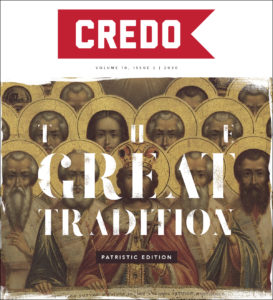We begin reading with prayer, a prayer of thanksgiving. Thanksgiving is in order because God is good. God, in his inestimable goodness, is faithful to his promise to bless the world through Abraham’s offspring. That promise is fulfilled in Jesus Christ and in the gift of the Spirit. Intrinsic to that promise is the sub-promise, the promise to raise up witnesses. The risen and ascended Lord Jesus Christ bears witness to himself through the witness of others. All Christians, following the intuition and example of the apostles, are to bear witness. This is our common vocation and call, rooted in our baptism.
Every one of us has been equipped with gifts that edify our common life in Jesus Christ. One of those gifts is contemplation of God and all things as they relate to God. This gift includes the spread of the fruit of that contemplation to others. The life of contemplation is an active one. Its activity is twofold. First, it involves the prayerful meditation on Holy Scripture. Second, it involves prayerful catechizing in relation to those truths received via Holy Scripture.
Over the centuries, God has given especial gifts to certain individuals in fidelity to Jesus’s promise to lead through the Spirit into all truth. The gifts given to a Thomas Aquinas, for example, are but the fruit of Christ’s promise to come to us in the Spirit, and to lead us through his proclaimed and written Word. Throughout the history of the church, God has raised up distinctly gifted hearers of the Word. That most of these hearers were pastors, bishops, monks, and priests should not surprise us. That they gave themselves over primarily to preaching and biblical commentary—the line between the two is often not terribly distinct—is, moreover, important to think about.
To Fight Hard-Heartedness
The motivation for concerning ourselves with the tradition of hearing is our own hard-heartedness. The gift of Augustine’s sermons, for example, is not so much their rhetorical power but their transparency with respect to Scripture. The reader herself feels addressed and convicted by the risen Word. He uses indirect words—the words of a sermon, for example—to draw loving attention to his written Word. Put differently, we engage in contemplative study of the tradition because we desire ears with which to hear. Attention to the sermons and commentaries of the doctors goes along way. By the grace of God, they help us to expel evil in our minds and help us to see what is good, above all, God himself. Click To Tweet
Some of you are no doubt thinking, but whose voice do I need to hear? Which ancient witness, for example? Well, the answer to these questions involves judgments. Without immediately naming names, I am more and more impressed with how united are the voices that constitute catholic Christianity. Although the language and feel of Calvin’s exegesis differs quite significantly from Thomas, their conclusions are at times remarkably similar. Why? We turn to the tradition in order to hear better, and God is faithful to his promise to raise up teachers to help us hear. Though there is “melancholy desolation” surrounding us everywhere, we ought not to be discouraged, for Christ’s death and resurrection is never, as Calvin insists, without fruit. Christ keeps his church, if at times only in hiding places. In reading the works of an Anselm, for example, we are led to rejoice, not because Anselm is always “right,” but because there is evidently a desire to hear, and hear he has.
Prayer, Humility, and Thanksgiving
Speaking on a practical level, and assuming a prayerful and humble disposition, it is always best to go to the primary sources themselves. Wherever possible, go to a commentary or sermon. In that way, you often receive more immediate access to profound systematic-theological insights. In the case of Thomas, one of the best way to introduce students to his thought is to have them read his commentary on John.
Further to this, when reading in the tradition, with prayer and thanksgiving, avoid reducing the great teachers of the church Catholic to views or positions. Calvin did not get up in the morning to articulate a view of this or that doctrine. Instead, he was motivated by the Spirit to hear Christ, love him, and serve him. His works bear witness to that. The faith of the church catholic is present there. That faith is always kept by God, in faithfulness to the promise made, in mercy unending.
Last, do not think that the only “good” theologians are dead theologians. There are living theologians whose works are worth their considerable time and effort. It would be intellectually lazy and spiritually callous to say that only serious theology, both evangelical and catholic, is not being written today.
In sum, the motivation for engaging the tradition arises in prayer. In Psalm 140:1-2, David prays for deliverance from evildoers, those who “plan evil things in their minds.” We are susceptible to sloth, indeed to allowing thoughts less than worthy of God to fester and germinate. God in his great goodness has given us medicine in abundance by which evil and ungodly thoughts are expelled. The first medicine is Scripture, prayerfully and thankfully received, in the community of Word and sacrament. The second is the writing of the teachers of the church catholic, past and present. Though not always accessible, and often quite dense, attention to the sermons and commentaries of the doctors goes along way. By the grace of God, they help us to expel evil in our minds and help us to see what is good, above all, God himself.


